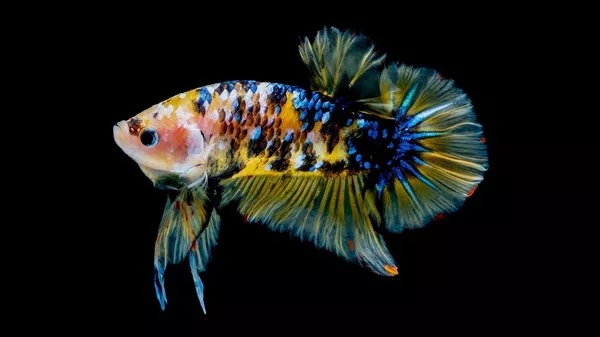Breeding Angelfish (Pterophyllum scalare) can be a rewarding experience for aquarium enthusiasts. However, one common challenge that breeders face is preventing adult Angelfish from consuming their own eggs. While this behavior is natural, it can be frustrating when you’re trying to raise a new generation of these beautiful fish. In this article, we will explore strategies to help you stop your Angelfish from eating their eggs and increase the chances of successful breeding.
Separate the Parents
The most effective way to prevent adult Angelfish from eating their eggs is to remove them from the breeding tank immediately after spawning. Once the eggs are laid on a flat surface, gently transfer the adults to a separate tank. This not only protects the eggs from being consumed but also allows the parents to recover from the stress of breeding.
Use a Breeding Cone or Flat Surface
Providing a dedicated breeding cone or a flat, vertical surface, such as a clean piece of slate, can encourage your Angelfish to lay their eggs in a more accessible location. This reduces the chances of the adults being able to reach and consume the eggs.
Dim Lighting
Angelfish are less likely to eat their eggs in low-light conditions. Consider using a dim aquarium light or covering the breeding tank with a dark cloth to create a subdued environment during the breeding process.
Offer Proper Nutrition
Well-fed Angelfish are less likely to consume their eggs out of hunger. Ensure that the breeding pair receives a balanced and nutritious diet leading up to and during the breeding process. High-quality flakes, pellets, and live or frozen foods can help satisfy their nutritional needs.
Raise Water Temperature
Increasing the water temperature slightly to around 80-82°F (27-28°C) can encourage better parental care behavior. Be cautious not to raise the temperature too high, as it can stress the fish.
Remove Unfertilized Eggs
As soon as the eggs hatch, remove any unfertilized or dead eggs from the tank. These decaying eggs can attract the attention of the parents and lead to them consuming the healthy ones.
Use a Separate Rearing Tank
Once the eggs hatch and the fry become free-swimming, consider moving them to a separate rearing tank. This further reduces the chances of the parents preying on the fry.
Practice Patience
Sometimes, it takes a few breeding attempts for Angelfish to become better parents. Be patient and observe their behavior to identify any improvements over time.
Conclusion
Preventing Angelfish from eating their eggs requires careful planning, observation, and prompt action. By providing suitable breeding conditions, removing the parents, and offering proper nutrition, you can increase the likelihood of successful egg hatching and fry survival. Breeding Angelfish can be a rewarding endeavor, and with the right strategies, you can enjoy the sight of a new generation of these graceful fish thriving in your aquarium.
Recommended reading:

























